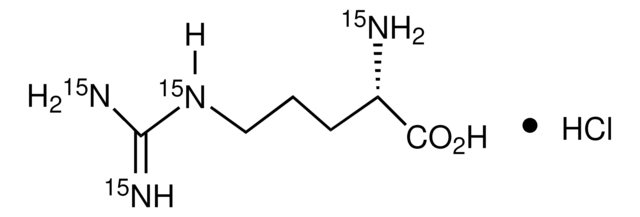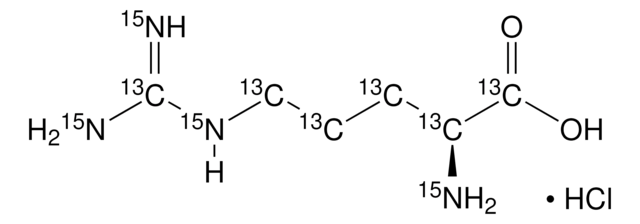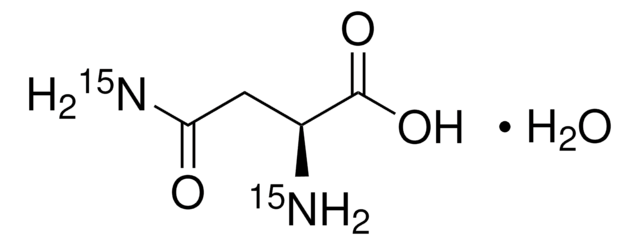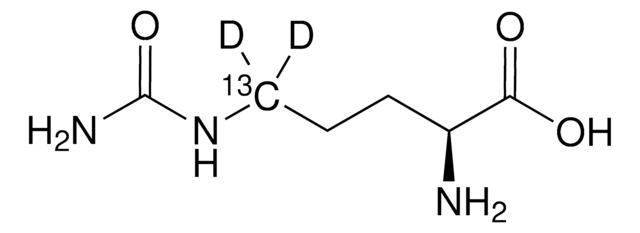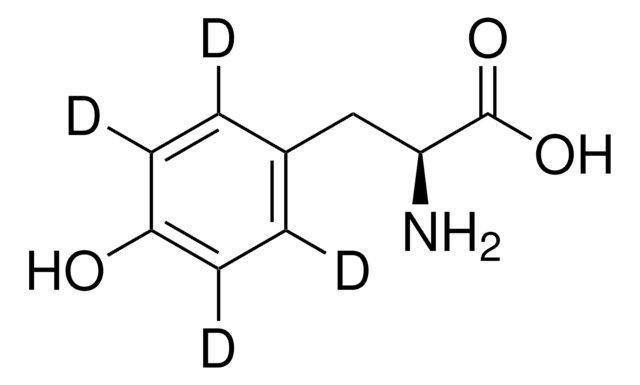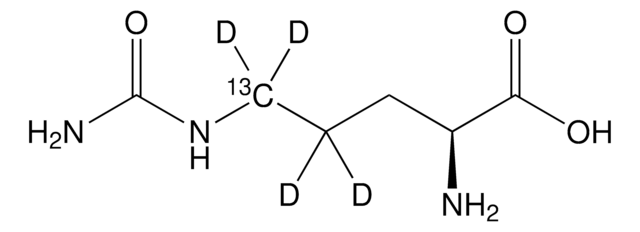643440
L-Arginine-13C6 hydrochloride
99 atom % 13C, 95% (CP)
Synonym(s):
SILAC Amino Acid, (S)-(+)-2-Amino-5-[(aminomethyl)amino]pentanoic acid-13C6 hydrochloride, 13C Labeled arginine, 13C Labeled arginine hydrochloride
About This Item
Recommended Products
isotopic purity
99 atom % 13C
Quality Level
Assay
95% (CP)
form
solid
optical activity
[α]20/D +22°, c = 12 in 10% HCl
technique(s)
protein expression: suitable
mp
226-230 °C (dec.) (lit.)
mass shift
M+6
SMILES string
Cl[H].N[13C@@H]([13CH2][13CH2][13CH2]N[13C](N)=N)[13C](O)=O
InChI
1S/C6H14N4O2.ClH/c7-4(5(11)12)2-1-3-10-6(8)9;/h4H,1-3,7H2,(H,11,12)(H4,8,9,10);1H/t4-;/m0./s1/i1+1,2+1,3+1,4+1,5+1,6+1;
InChI key
KWTQSFXGGICVPE-BJPSCUOKSA-N
Looking for similar products? Visit Product Comparison Guide
Application
Packaging
related product
Storage Class Code
11 - Combustible Solids
WGK
WGK 3
Flash Point(F)
Not applicable
Flash Point(C)
Not applicable
Choose from one of the most recent versions:
Already Own This Product?
Find documentation for the products that you have recently purchased in the Document Library.
Customers Also Viewed
Related Content
Protein structure analysis aids in identifying disease biomarkers and drug targets crucial for therapeutic treatments.
Protein structure analysis aids in identifying disease biomarkers and drug targets crucial for therapeutic treatments.
Protein structure analysis aids in identifying disease biomarkers and drug targets crucial for therapeutic treatments.
Protein structure analysis aids in identifying disease biomarkers and drug targets crucial for therapeutic treatments.
Our team of scientists has experience in all areas of research including Life Science, Material Science, Chemical Synthesis, Chromatography, Analytical and many others.
Contact Technical Service